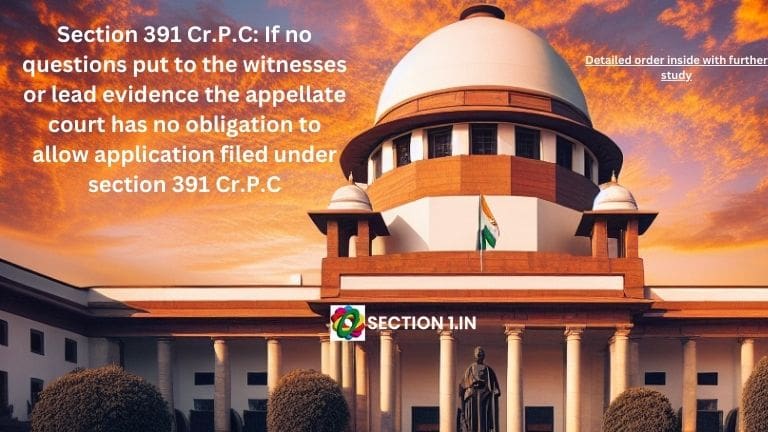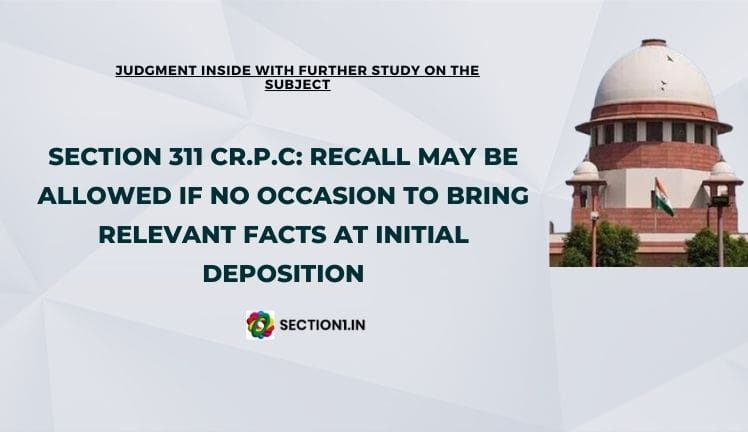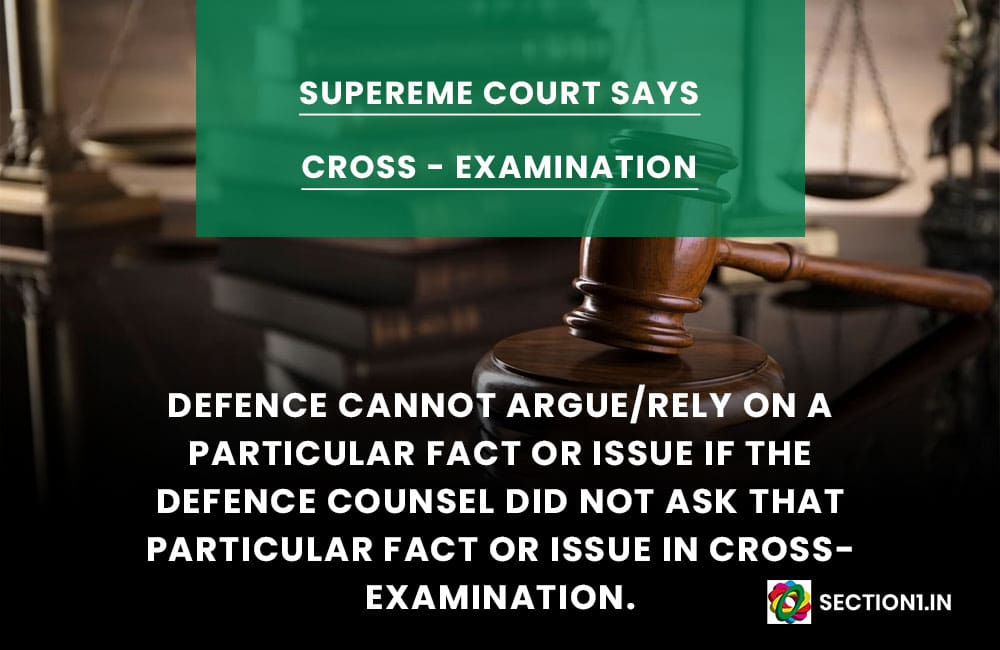Challenge
2) The instant appeal by special leave filed at the behest of the appellant accused calls into question the order dated 25th October, 2023 passed by the High Court of Gujarat rejecting the Criminal Misc. Application No. 17933 of 2023 preferred by the appellant under Section 482 read with Section 391 of the Code of Criminal Procedure, 1973 (hereinafter being referred to as ‘CrPC’).
Facts
3) The appellant was prosecuted for the offence punishable under Section 138 of the Negotiable Instruments Act, 1881(hereinafter being referred to as ‘NI Act’) before the learned trial Court with an allegation that the cheque to the tune of Rs. 10 lakhs issued by the appellant in favour of the complainant Shri Mahadevsinh Cahndaasinh Champavat upon being presented in the bank was dishonoured “for insufficient funds and account dormant”.
Petition for sending cheque for handwriting expert is dismissed by trial court
4) During the course of trial, the appellant preferred an application dated 13th June, 2019 before learned trial Court with a prayer to send the cheque to the handwriting expert for comparison of the handwriting as well as signature appearing thereon with a plea that his signatures had been forged on the cheque in question. The learned trial Court rejected the application vide order dated 13th June, 2019 itself observing that the application was aimed at delaying the trial. The learned trial Court further observed that the matter was at the stage of defence and the accused could lead evidence to prove his claim pertaining to mismatch of signatures.
Application under section 391 Cr.P.C dismissed for additional evidence is dismissed by the appellate court
6) The appellant preferred an appeal before the Principal Sessions Judge, Gandhinagar and during pendency thereof, he filed an application under Section 391 CrPC for taking additional evidence at appellate stage and seeking a direction to obtain the opinion of the handwriting expert after comparing the admitted signature of the accused appellant and the signature as appearing on the disputed cheque. Another prayer made in the said application was that the concerned officer from the Post Office should be summoned so as to prove the defence theory that the notice under Section 138 of NI Act was never received by the accused appellant.
7) Such application preferred by the appellant was rejected by the learned Principal Sessions Judge, Gandhinagar vide detailed order dated 25th July, 2023, which was carried by the appellant to the High Court by filing the captioned Criminal Misc. Application No. 17933/2023 which came to be dismissed by order dated 25th October, 2023 which is under challenge in this appeal.
Law regarding section 391 Cr.P.C
9) At the outset, we may note that the law is well-settled by a catena of judgments rendered by this Court that power to record additional evidence under Section 391 CrPC should only be exercised when the party making such request was prevented from presenting the evidence in the trial despite due diligence being exercised or that the facts giving rise to such prayer came to light at a later stage during pendency of the appeal and that nonrecording of such evidence may lead to failure of justice.
Appellate court noted that not a single question was put to the witness regarding the issue on hand
10) It is apposite to mention that the learned first appellate Court, i.e., the Principal Sessions Judge, Gandhinagar had taken note of the fact that during the trial, the appellant examined the witness of the Bank of Baroda in support of his defence but not a single question was put to the said witness regarding genuineness or otherwise of the signatures as appearing on the cheque in question.
Section 118(e) N.I Act presumption regarding indorsements is in favour of the complainant and the accused could rebut by leading evidence
14) Section 118 sub-clause (e) of the NI Act provides a clear presumption regarding indorsements made on the negotiable instrument being in order in which they appear thereupon. Thus, the presumption of the indorsements on the cheque being genuine operates in favour of the holder in due course of the cheque in question which would be the complainant herein. In case, the accused intends to rebut such presumption, he would be required to lead evidence to this effect.
Accused could have procured a certified copy of his specimen signatures from the bank to prove the signature in the cheque is not genuine
16) Thus, we are of the view that if at all, the appellant was desirous of proving that the signatures as appearing on the cheque issued from his account were not genuine, then he could have procured a certified copy of his specimen signatures from the Bank and a request could have been made to summon the concerned Bank official in defence for giving evidence regarding the genuineness or otherwise of the signature on the cheque.
Accused did not put any question to the bank official regarding the genuineness of signature in the cheque
17) However, despite having opportunity, the accused appellant did not put any question to the bank official examined in defence for establishing his plea of purported mismatch of signature on the cheque in question and hence, we are of the firm opinion that the appellate Court was not required to come to the aid and assistance of the appellant for collecting defence evidence at his behest. The presumptions under the NI Act albeit rebuttable operate in favour of the complainant. Hence, it is for the accused to rebut such presumptions by leading appropriate defence evidence and the Court cannot be expected to assist the accused to collect evidence on his behalf.
If no questions put to the witnesses or lead evidence in the trial court the appellate court has no obligation to allow application filed under section 391 Cr.P.C
19) So far as the allegation of the accused appellant that he did not receive the notice under Section 138 of the NI Act is concerned, it would be for the appellate Court while deciding the appeal to examine such issue based on the evidence available on record and thus, there was no requirement for the appellate Court to have exercised power under Section 391 CrPC for summoning the official from the Post Office and had rightly rejected the application under Section 391 CrPC.
Party
AJITSINH CHEHUJI RATHOD ….APPELLANT(S) VERSUS STATE OF GUJARAT & ANR. …RESPONDENT(S) – CRIMINAL APPEAL NO(S). 478 OF 2024 (Arising out of SLP(Crl.) No(s). 16641 of 2023) – 2024 INSC 63 – January 29, 2024.
Ajitsinh Chehuji Rathod vs. State of Gujarat
Further study
Whether defence counsel can argue if he does not ask question in cross? – No





